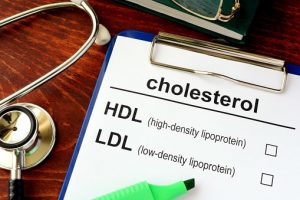 We all know that between HDL and LDL cholesterol, you want more HDL because it’s considered the good type of cholesterol. But even too much good cholesterol can be bad.
We all know that between HDL and LDL cholesterol, you want more HDL because it’s considered the good type of cholesterol. But even too much good cholesterol can be bad.
New research has found that HDL cholesterol could contribute to infectious diseases like pneumonia and gastroenteritis.
Advertisement
Professor and chief physician Børge Nordestgaard explained, “Surprisingly, we found that individuals with both low and high HDL cholesterol had [a] high risk of hospitalization for an infectious disease. Perhaps more importantly, these same groups of individuals had [a] high risk of dying from infectious disease.”
The study looked at 100,000 individuals from the Copenhagen General Population Study, which followed individuals for six years.
Study co-author Christian Medom Madsen added, “Numerous studies in animals and cells indicate that HDL is of importance for the function of the immune system and thereby the susceptibility to infectious disease, but this study is the first to examine if HDL is associated with the risk of infectious disease among individuals from the general population.”
“Our findings indicate that, in the future, research into the role and function of HDL should not narrowly focus on cardiovascular disease, but rather focus on the role of HDL in other disease areas, such as infectious disease,” continued Nordestgaard.
Advertisement
Those with the highest risk for infectious disease included 21 percent of the population with the lowest levels of HDL cholesterol and those in the eight percent highest levels. Those with low levels of HDL had a 75 percent higher risk for infectious disease compared to the reference group, who had a 43 percent higher risk for infectious disease than the very high HDL group.
It’s important that you maintain healthy levels of cholesterol, meaning LDL levels aren’t too high and HDL levels are normal – not too high or too low – in order to maintain overall good health.
Related: Causes of low HDL cholesterol levels
